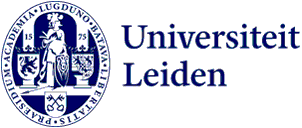
What does learning 'for' sustainability mean?
As of October, Joeri Reinders has joined the Leiden Teachers’ Academy, a group of innovative lecturers who each receive a €25,000 grant for projects focused on educational innovation. For Joeri, this revolves around sustainability and climate change.
What does your project involve?
‘In this project, university and vocational (mbo) students will work together on sustainability challenges. The aim is to encourage them to actively reflect on what sustainability means to them. Once students find their own meaning in it, they’re more likely to change their behaviour and feel motivated to live more sustainably.
That’s exactly what I hope to achieve. We want students to learn for sustainability (for instance, what you achieve by being a vegetarian) rather than merely about sustainability (knowing that cows emit methane).
In the future, vocational students will play a key role in the sustainability transition—think of maintaining electric vehicles. Collaboration with university students allows them to learn from one another’s perspectives and move beyond their own bubbles. It’s also a way to challenge one’s own assumptions.’

What will you do with the grant?
‘The funding will be used to develop learning materials. In 2024, for example, I designed the Climate Casino: a serious game that encourages vocational students to discuss climate issues in a stimulating way. Since mbo students often have less trust in science, the game shows that knowledge can also exist beyond academic publications and can be presented in accessible language.
We’ve already developed an online version for teachers, but the goal is for students to play it themselves and even create their own questions. The Climate Casino should also be scalable, so that teachers across vocational, applied sciences, and university levels can use it independently. That takes a lot of time and energy.’

Do you already have a vision of what this educational innovation looks like?
‘Absolutely! As a workshop lecturer at the art academy in Arnhem, I taught earth sciences. We wanted to challenge technically trained students to think not just practically, but creatively. That’s why we used place-based learning—learning through your own surroundings. In this way, education shifts from questions like 'what is sand or clay?' to 'what do you think of the place you’re building on, and how can you express your creativity there?'
We went to Drenthe for workshops where students could really experience their environment: seeing, smelling, feeling. One make-up vlogger dug up a piece of peat, which normally smells like rotten eggs, but she found it so beautifully black that she wanted to use it as mascara. Experiences like that encourage students to look at their environment differently and develop a personal vision that can influence their behaviour.
That behavioural change is precisely the goal: not just acquiring knowledge in the classroom, but letting your behaviour be inspired by your own vision. You only truly see the relevance of something when it’s connected to your own environment. In The Hague, for example, I’d like to explore this in the dunes: what role do they play in protecting your city?’
What do you ultimately hope to achieve with your project?
‘Firstly, I want to encourage teachers to reflect on the combination of their educational goals and the methods they use to achieve them. If the aim is to contribute to a more sustainable world, you won’t achieve that by merely teaching factual knowledge. The content needs to connect to students’ own experiences and motivations.
Secondly, I hope the project will foster greater appreciation for vocational education. Through collaboration, students can learn a lot from each other. I see this as a bridge to active citizenship: learning from one another and working together to broaden your perspective.
Finally, good guidance is essential for effective collaboration. Simply putting university and vocational students together doesn’t guarantee success. Clear instruction and support are key to making cooperation truly work.’
